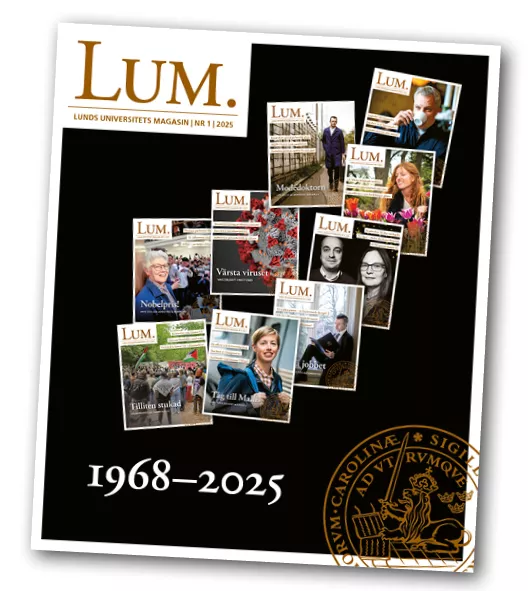“I think we are currently in a situation in which the most important thing is not for universities to receive more money, but that we continue to keep an arm’s length from the state. We are dangerously close and, as I see it, at present there is no issue more important than organisational autonomy,” says Tim Ekberg, Head of Planning at Lund University.
Facts are a heated issue
Tim Ekberg worked at the Ministry of Education under five different ministers from both sides of politics. Historically, he says, the Social Democrats have operated under the motto that ‘all of Sweden shall live’. In practice, this has led to an increase in higher education institutions in locations that have not previously offered higher education and research. In times when the centre-right bloc has been in power, the priorities have leaned more towards excellence and cutting-edge research and the importance of internationally recognised research.
“I see the Social Democrats as a social-liberal force, so regardless of which bloc has been in government, parties with liberal values have governed Sweden since the Second World War. However, now there are other political forces which, in my view, are not liberal and which threaten our fundamental values and academic freedom,” says Tim Ekberg.
What knowledge is and how facts are defined has become an increasingly heated issue. Right-wing populist forces have, among other things, targeted education and research linked to gender equality and climate change. These movements spread climate change denial, distrust and conspiracy theories.
“What happens if we end up with a government that says, ‘Here is some money, but you must not use it for feminist research’? What happens if we accept that? If we do, are we still credible as independent conveyors and creators of knowledge?”
Freedom is discussed
The free search for knowledge and the free circulation of knowledge is at the heart of the purpose of higher education institutions. There is no other social institution with this as its main purpose. This unique status makes higher education institutions particularly worthy of protection, according to Tim Ekberg.
Academic freedom means different things to different people. For some, it means individual freedom – to be able to research what you want. At another level, there is collegial academic freedom, i.e., freedom of the group. Up another notch, there is organisational freedom and the question of whether higher education institutions should be governed by politics, and if so, how strictly.
“The issue is now bubbling up and will be the subject of much discussion in the future, both here in Sweden and across Europe,” believes Tim Ekberg.
Politicians are usually cautious
In addition to the issue of academic freedom and the autonomy of universities being nudged in different directions depending on the outcome of the election, Tim Ekberg does not believe that the election this autumn will have a particularly significant impact on the short-term activities of universities. Historically, the political parties, regardless of their colour, have been relatively cautious in governing higher education and research. Based on his experience of working in the Swedish Government Offices, he considers politicians are apprehensive about going in and managing higher education and research too impudently and directly.
“They have a sort of built-in reflex and wariness about us. Politicians prefer not to go in and take us on because they know that academics and researchers often have good relationships with the media.”
Money and control
At the same time, there has been control, and over time it has certainly increased in research, according to Tim Ekberg. In the past, the Government was cautious in governing what the universities should be researching, but the Ministry of Education has increasingly started to point out and invest in different areas of priority.
“The trend has been more money, but also more control.”
The current profile areas are not controlled in the same way. Each university is to develop their profile areas, without the interference of politicians.
“However, behind this is a form of distrust that has existed for a long time among politicians. There is a distrust of our ability to prioritise and to harness our strengths. The profile areas will act as a signal that if we harness our strengths and renew ourselves, we will get money. However, that mistrust is ill-founded. Research at the universities is often well-equipped to change, renew and be relevant,” says Tim Ekberg.



